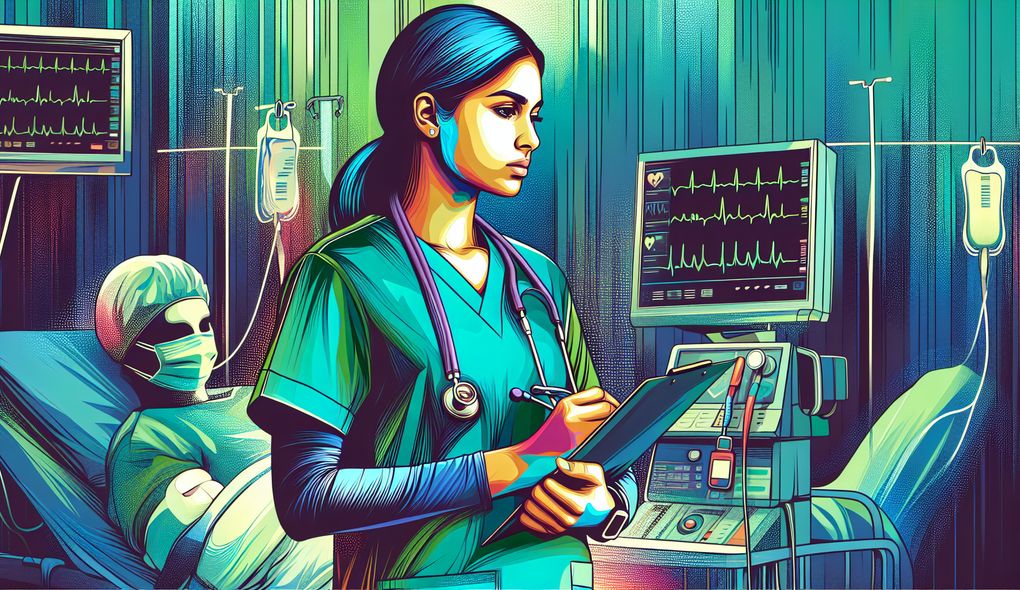What would you do if you made a mistake in administering medication to a patient?
INTERMEDIATE LEVEL

Sample answer to the question:
If I made a mistake in administering medication to a patient, I would immediately take responsibility for my actions. I would notify my supervisor and the patient's healthcare team right away to ensure that the mistake is addressed promptly. I would closely monitor the patient's condition and document any adverse effects or changes. Additionally, I would cooperate fully in the investigation of the incident, providing all necessary information and participating in any required discussions or meetings. I would also take the initiative to learn from my mistake by seeking additional training or education to prevent similar errors in the future.
Here is a more solid answer:
If I made a mistake in administering medication to a patient, I would take immediate action to correct the situation. First, I would assess the patient's condition and any potential harm caused by the error. I would then inform my supervisor and the patient's healthcare team, providing them with a detailed account of the mistake and any relevant information. Next, I would closely monitor the patient's vital signs and symptoms, documenting any adverse effects or changes. I would prioritize the patient's safety and comfort, ensuring that any necessary interventions or treatments are provided. I would also communicate openly and honestly with the patient and their family, explaining the situation, apologizing for the mistake, and answering any questions or concerns they may have. Additionally, I would actively participate in the investigation and evaluation of the incident, cooperating fully and providing any requested information. To prevent similar errors in the future, I would take personal responsibility for my actions and actively seek opportunities for improvement and learning. This may include additional training or education, staying updated on medication administration guidelines, and participating in quality improvement initiatives within the unit or hospital.
Why is this a more solid answer?
The solid answer provides more specific details on the candidate's actions, such as assessing the patient's condition and informing the healthcare team. It also emphasizes open communication with the patient and their family. However, it could still be improved by providing more concrete examples of how the candidate would actively seek opportunities for improvement and learning.
An example of a exceptional answer:
If I made a mistake in administering medication to a patient, I would prioritize the patient's safety and well-being above all else. First, I would immediately assess the patient's condition and any potential harm caused by the error. I would then take immediate corrective actions, such as informing the patient's healthcare team, documenting the incident comprehensively, and initiating any necessary interventions or treatments. I would communicate openly and empathetically with the patient and their family, ensuring they are informed about the mistake, the actions taken to address it, and any potential implications. I would provide emotional support, actively listening to their concerns and addressing them with compassion. Additionally, I would actively participate in the investigation and analysis of the incident, contributing my knowledge and insights to prevent similar errors in the future. To enhance my professional development, I would seek out educational opportunities related to medication administration safety, such as attending workshops or courses. I would also engage in regular self-reflection and peer-review processes to continually improve my practice. Furthermore, I would actively participate in quality improvement initiatives within the unit or hospital, collaborating with colleagues to identify areas for enhancement and implementing evidence-based practices to ensure medication safety for all patients.
Why is this an exceptional answer?
The exceptional answer demonstrates a strong commitment to patient safety and well-being. It includes specific actions such as providing emotional support to the patient and their family and engaging in self-reflection and peer-review processes. It also highlights the candidate's proactive approach to professional development and contribution to quality improvement initiatives. The answer is comprehensive and addresses all evaluation areas.
How to prepare for this question:
- Familiarize yourself with the proper protocols and guidelines for medication administration.
- Stay updated on current medication trends and best practices.
- Develop strong critical thinking and problem-solving skills to identify potential errors or risks.
- Practice open and effective communication with patients, families, and healthcare team members.
- Seek opportunities for continuous learning and professional development, such as attending relevant workshops or courses.
- Reflect on past experiences and think of scenarios where medication errors could occur and how you would handle them.
What are interviewers evaluating with this question?
- Attention to detail
- Problem-solving
- Interpersonal skills
- Commitment to professional development

